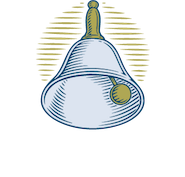The Montessori Tradition
The Montessori tradition is rooted in the educational philosophy of Italian physician Maria Montessori. She believed that children needed a more comprehensive and systematic approach to education. Her approach included multi-sensory learning, common sense, and self-directed experiences.
In the beginning, young children were taught through action. They were encouraged to explore topics of interest and use materials to create their own ideas. These lessons, known as Great Lessons, are designed to ignite a child's imagination and encourage curiosity.
Great Lessons focus on a larger, more comprehensive concept and give the child a holistic vision. The teacher uses stories, gestures, and visuals to convey the message. It's best to tell the story with enthusiasm and wonder, and allow the students to participate in the lesson.
At the start of a new school year, Montessori teachers typically begin by telling the First Great Lesson. This is a foundational lesson that lays the foundation for the entire year. There is also a focus on astronomy, geography, and physics. These lessons are also enriched by beautiful visuals of scientific elements.
Students may also take competitive tests to gauge their abilities. The tests are stress-free, meaning that each student is able to complete the test without pressure. Many students begin giving back to the community at this time, and older students can practice compassion and resourcefulness.
Another important tradition is the birthday celebration. On a Montessori birthday, the child walks around the "sun" that represents the year of their life. Their birthday child is given a globe of the earth, which they can hold up to the sky. Every trip around the "sun" represents a year on our planet.
Children are then invited to eat a wholesome snack with their classmates. They can also blow a candle and make a wish. If their parents want to celebrate, they can share a treat with their friends. A birthday in a Montessori classroom is a wonderful way to bond with other children.
Some other traditions include an annual birthday celebration, the Winter Festival, and a camping trip. Elementary and middle school students look forward to each of these events every year. One of the goals of a Montessori school is to help the children develop into confident and self-motivated individuals.
Each child's birthday is celebrated in a different way. For example, a young child might have a low table in the kitchen, and they might drink from a cup or bottle of water. Once the child has reached a certain age, they will be invited to bring their favorite cookie to school.
Upper elementary students are often invited to hear the Five Great Lessons stories. This is a tradition that continues to inspire students and spark their imagination. Typically, they are told to lower elementary students during the first eight weeks of the school year. However, each Montessori teacher will tell these stories in their own way.
Other traditions at a Montessori school include weekly rituals, historical Halloween, and the Middle School Odyssey. The goal of a Montessori school is to nurture the development of each student to become a caring, confident individual.
Tel
: 647-383-8363
E-mail
:
[email protected]
